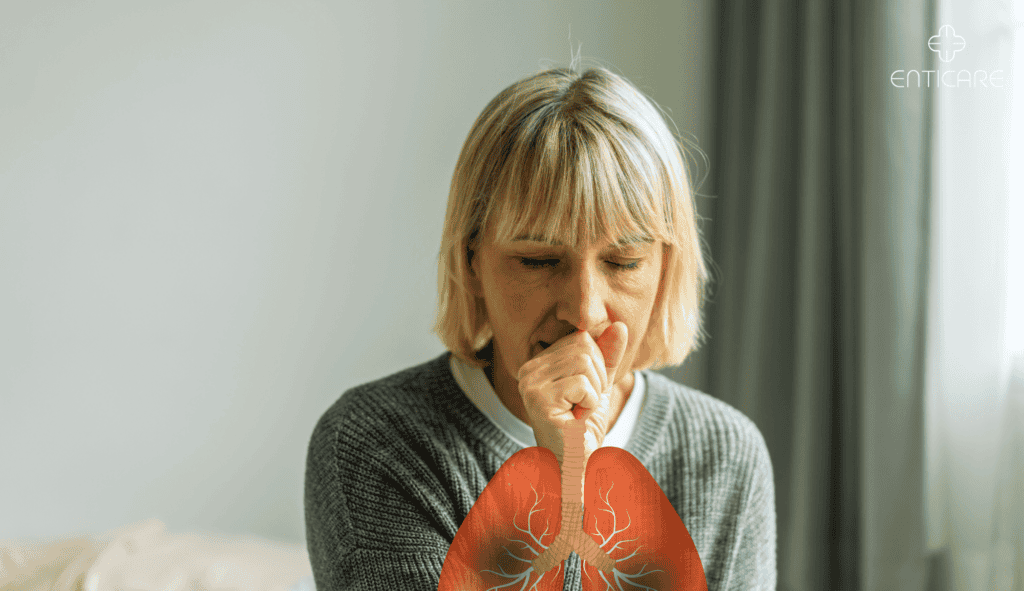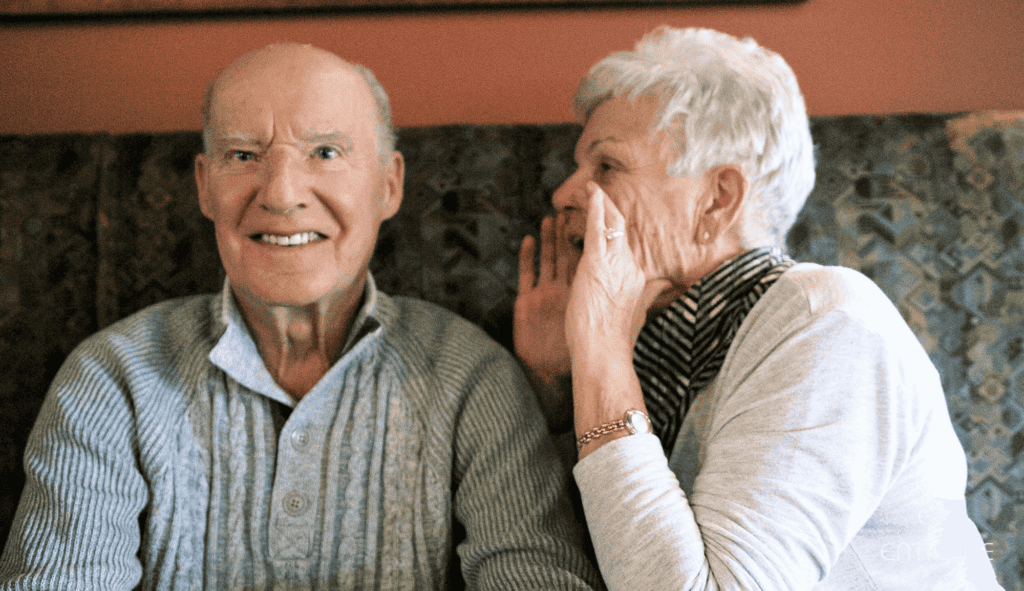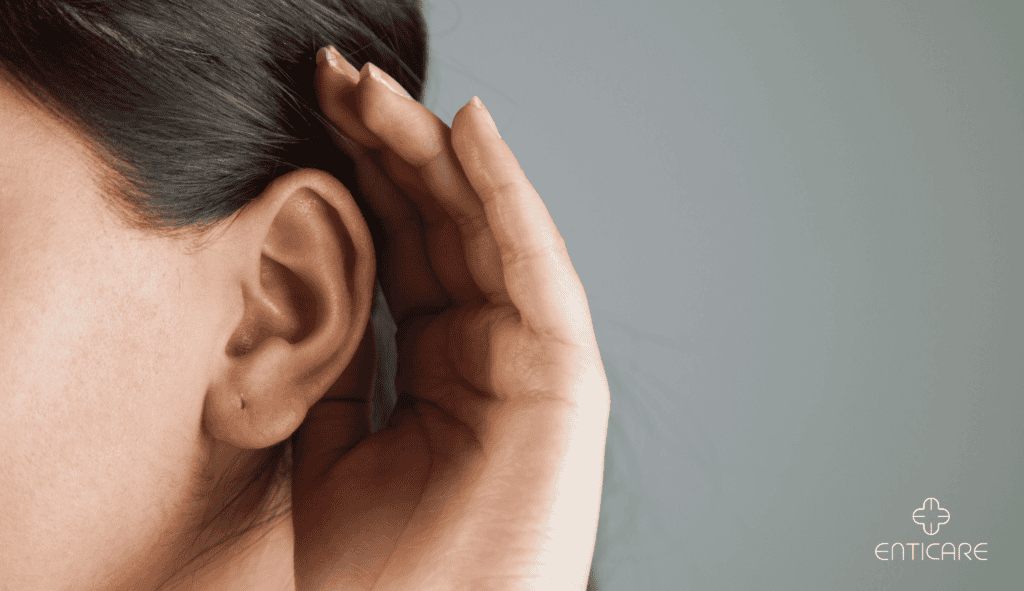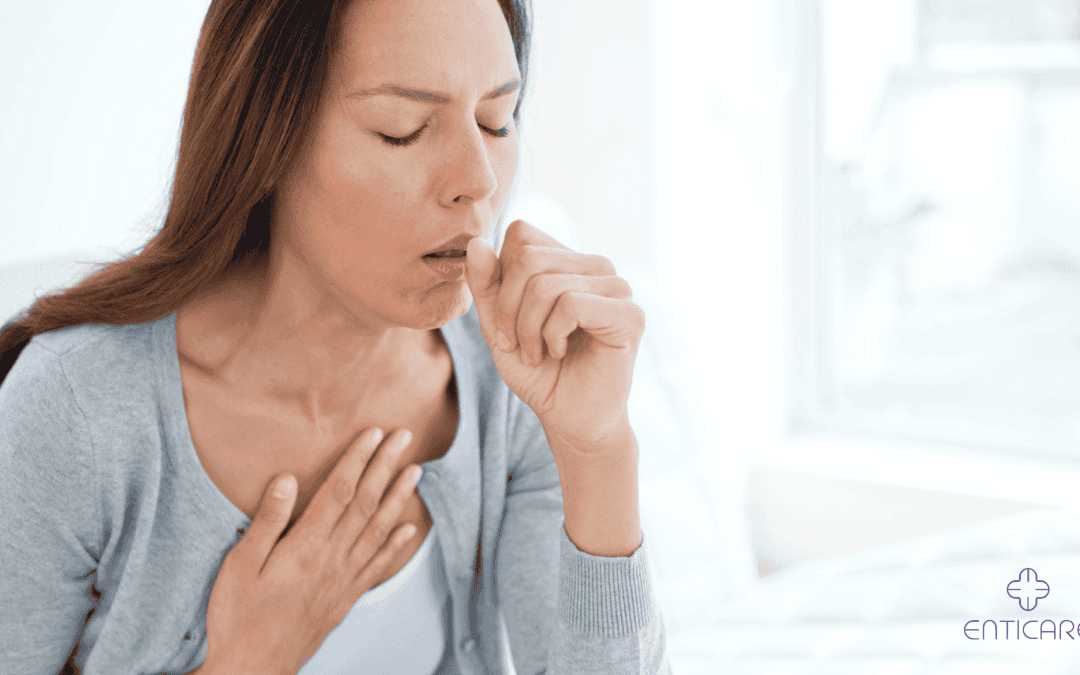Coughing is a common reflex that helps clear your airways, but what if the sound of a harsh cough affects more than just your throat? For some individuals, a sudden, forceful cough may lead to temporary or, in rare cases, long-term hearing loss. This is similar to complications from the common cold, where fluid buildup in the ears can cause temporary hearing loss. While this may sound unlikely, there are situations where coughing can indeed harm your hearing. In this blog, we’ll explore the potential risks, causes, and remedies associated with this surprising phenomenon.

How Can Coughing Affect Hearing?
Coughing involves forceful air expulsion from the lungs. The act, when particularly intense, can have unexpected effects on the ear and hearing.
Pressure Buildup in the Ear
When you cough forcefully, the pressure generated in your chest can travel through your Eustachian tubes (the tubes connecting the middle ear to the back of the throat). A sudden surge of air pressure can lead to discomfort or even temporary changes in hearing as it disrupts the normal pressure balance in your ear.
Eustachian Tube Dysfunction
The Eustachian tube’s primary role is to equalize pressure in the middle ear. However, forceful coughing can create a pressure difference, leading to feelings of fullness in the ear, muffled hearing, or even pain. This dysfunction can result in fluid buildup in the middle ear, causing temporary hearing loss until the pressure normalizes.
Middle Ear Barotrauma
In rare cases, severe or repetitive coughing can cause middle ear barotrauma, a condition in which the pressure in the middle ear becomes too high. This condition can rupture the eardrum, leading to permanent hearing damage if not addressed promptly.
Conditions That Heighten the Risk of Hearing Loss Due to Coughing
Certain underlying health conditions can make you more vulnerable to hearing loss when you cough. Let’s explore these factors.
Sinus Infections and Coughing
People suffering from sinus infections may have more frequent or severe coughing fits. Since sinus pressure can already affect the Eustachian tubes, a hard cough can exacerbate the issue, increasing the risk of ear-related complications.
Cold or Respiratory Ear Infections
Cold or respiratory infections can present with cold symptoms that overlap with other conditions, such as allergies and COVID-19, potentially leading to ear congestion and hearing issues. Congestion places extra pressure on the Eustachian tube. If you have fluid in your middle ear due to an infection, coughing could potentially push that fluid into the inner ear, affecting hearing.
Pre-existing Ear Conditions
If you have a history of ear infections, including chronic ear infections that can lead to long-term hearing loss if not properly treated, tinnitus, or other ear conditions, your ears may be more susceptible to changes in pressure caused by coughing. In these cases, even a normal cough could cause discomfort or temporary hearing loss.

Symptoms of Hearing Loss After Coughing
After experiencing a harsh or prolonged coughing fit, some individuals notice changes in their hearing. The symptoms can vary depending on the severity of the pressure change or the condition causing it.
Temporary Hearing Loss
The most common symptom is difficulty hearing, which can be a sign of an ear infection leading to temporary hearing loss. The muffled or “blocked ear” sensation often resolves after a short period, once the Eustachian tube reopens and normalizes pressure.
Pain or Fullness in the Ear
You may feel pain or fullness in the ear due to a sudden pressure shift. This sensation can be uncomfortable and may persist for hours or days after the coughing episode.
Tinnitus (Ringing in the Ears)
Another possible symptom is tinnitus. After coughing, some individuals experience a ringing or buzzing sound in the ear, which may be caused by stress on the auditory system.
Preventive Measures for Protecting Your Hearing
While occasional coughing is unlikely to cause permanent damage to your hearing, there are steps you can take to minimize the risk of ear-related complications.
Stay Hydrated and Use Humidifiers
Keeping your throat and respiratory system hydrated can reduce the severity of coughing. Using a humidifier in dry environments helps keep your nasal passages and Eustachian tubes functioning properly, reducing pressure imbalances in the ear.
Avoid Excessive Coughing
If you suffer from chronic coughing, try to manage the underlying condition. For example, treating a sinus infection or cold with proper over-the-counter medications can help relieve congestion and reduce the frequency of coughing fits. Avoiding triggers that provoke coughing can also help protect your ears from unnecessary pressure changes.
Practice Gentle Coughing
If you need to cough, try to do so in a controlled manner. Avoid forceful or sudden coughing, as it puts more pressure on your ears. If you feel an urge to cough, try taking a slow, controlled breath instead.

Treatment Options for Hearing Loss After Coughing
If you experience hearing loss after coughing, several treatment options may help, depending on the severity of the condition.
Decongestants and Nasal Sprays
For individuals who experience ear fullness and temporary hearing loss due to congestion, including cold induced hearing loss, over-the-counter remedies like nasal decongestants or saline nasal sprays can help relieve pressure in the Eustachian tube and restore normal hearing.
Ear Pressure Relief Exercises
Performing ear pressure relief exercises, like the Valsalva maneuver (gently blowing through closed nostrils), can help equalize the pressure in the ears and restore normal hearing after a coughing episode.
Medical Intervention for Severe Cases
In cases of barotrauma or persistent ear problems, a doctor may need to intervene. They can use treatments like ear irrigation or, in extreme cases, recommend surgical procedures to correct any damage to the ear.
Ready to Protect Your Hearing?
If you’ve experienced hearing loss after coughing or have ongoing concerns about your ear health, it’s important to seek professional help. Our team at Enticare specializes in diagnosing and treating ear-related conditions. Schedule an appointment with us today to receive expert care and personalized solutions for your hearing needs.

